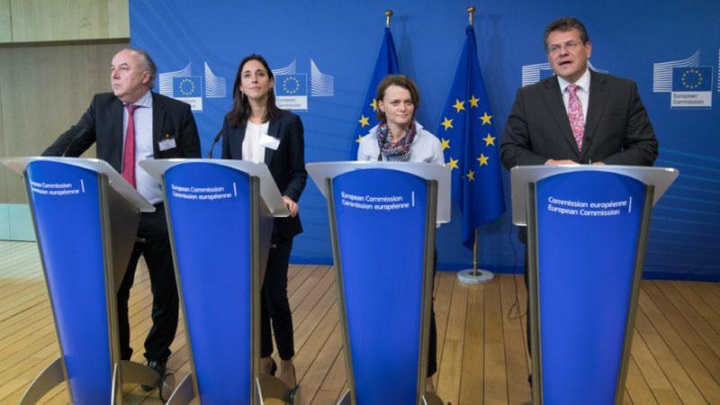The EU Commission’s VP Maroš Šefčovic has this week launched a new battery alliance initiative that aims to nurture a continent-wide improvement of Europe’s battery production landscape.
The initiative is being called an “Airbus for batteries” and was launched on October 11 with the assistance of the EU and a suite of largely German firms, including automakers Daimler, engineering company Siemens and chemical group BASF. French car giant Renault was also invited to the gathering, which aims to promote a consortium of invested players across Europe eager to improve the competitiveness of cell manufacturing.
“The lack of a domestic, European cell manufacturing base jeopardises the position of EU industrial customers because of the security of the supply chain, increased costs due to transportation, time delays, weaker quality control or limitations on the design”, said Šefčovic. “So, we need to act fast – and collectively – to overcome this competitive disadvantage and capitalize on our leadership in many sectors of the battery value chain, from materials to system integration and recycling.”
Battery cell producers are thin on the ground in Europe. The market’s leading names are either Korean (LG, Samsung), Chinese (BYD, CATL), Japanese (NEC, Panasonic) or American (Tesla). However, European giants Daimler and Volkswagen, as well as Total’s Saft Group, have expressed an interest in joining the alliance, the EU said.
Storage technologies are widely expected to form a vital pillar of Europe’s energy transition. The EC has said that it will adopt a strategic plan early next year, and could be supported by up to €2.2 billion in EU funding.
Thomas Speidel, president of the German Storage Association (BVES), told pv magazine that it welcomes the EU-Commission’s acknowledgement of the pivotal role energy storage technologies play in a carbon-free system.
“The BVES supports the push for a decisive political strategy to facilitate the market development of innovative storage technologies,” Speidel said. “However, a future-oriented vision for the European market brings the vast potential of all innovative energy technologies into the picture. Europe could end up flogging a dead horse if it does not take these opportunities. Innovation is a strength of the European energy storage market.”
Speidel concluded that Europe currently has a “good hand that should be played well” in the fast-changing and competitive global storage market.
Swiss storage specialists Leclanché, who were invited to the initiative, welcomed the move. “Battery technology is vital to the future security of Europe's energy supply and the initiative of Vice-President Šefčovič will help create the right momentum and sends a clear signal as to its importance,” said Anil Srivastava, Leclanché CEO.
“Leclanché has been investing heavily over the past few years in building the required industrial foundations to be in a position to play an important role in this ambitious plan, and we are delighted to see such a strong and clear position taken by the European Commission. Leclanché, as one of the oldest battery companies in Europe, and with its strong industrial experience, aims to play a key role in this process, as it continues to build its presence in North America, Asia and further re-enforces its existing European activities.”
This content is protected by copyright and may not be reused. If you want to cooperate with us and would like to reuse some of our content, please contact: editors@pv-magazine.com.



oh boy, I see an import duty in the making…
My crystal ball gives it 5 more years max…
I see the Koreans and Japanese building battery factories in Europe.